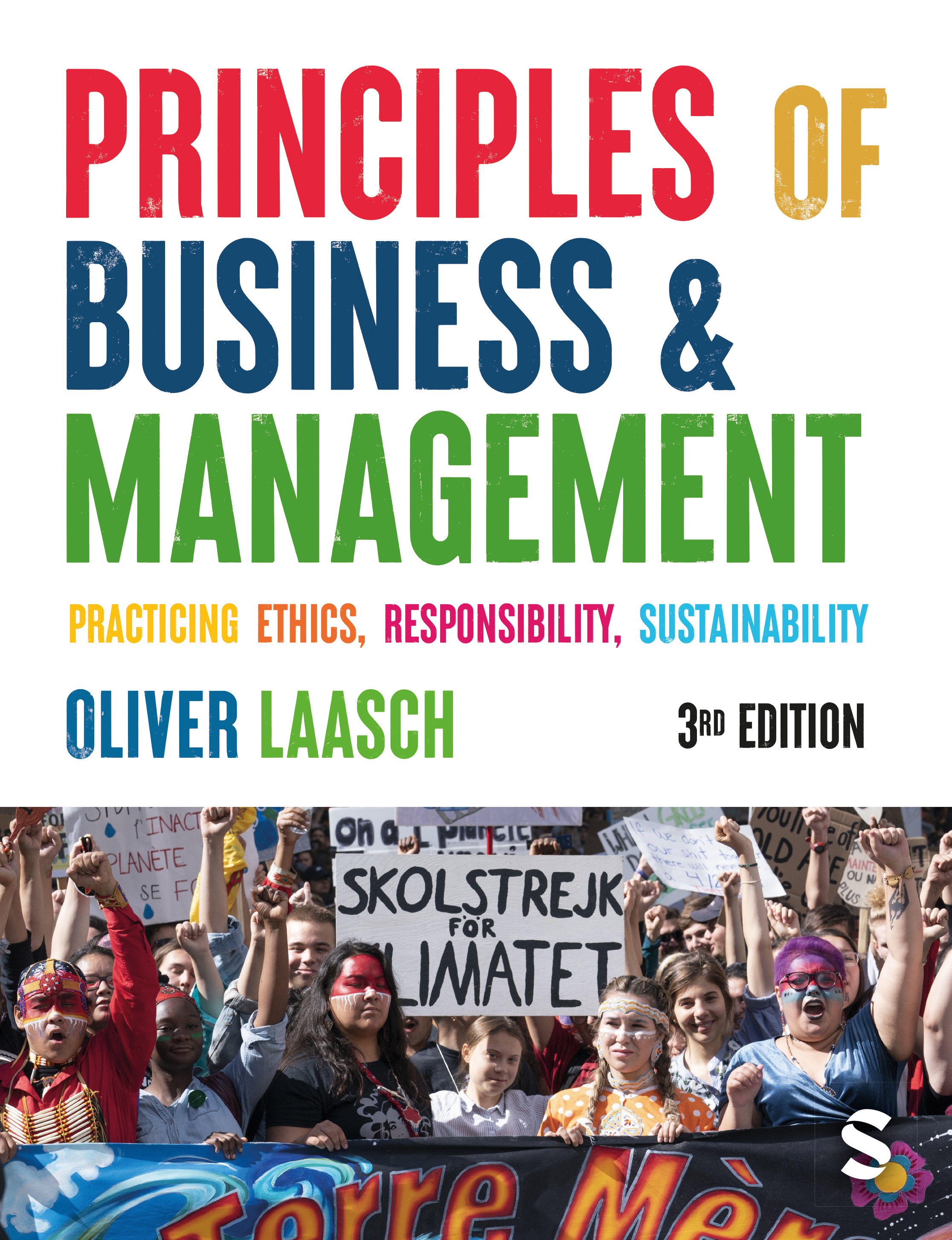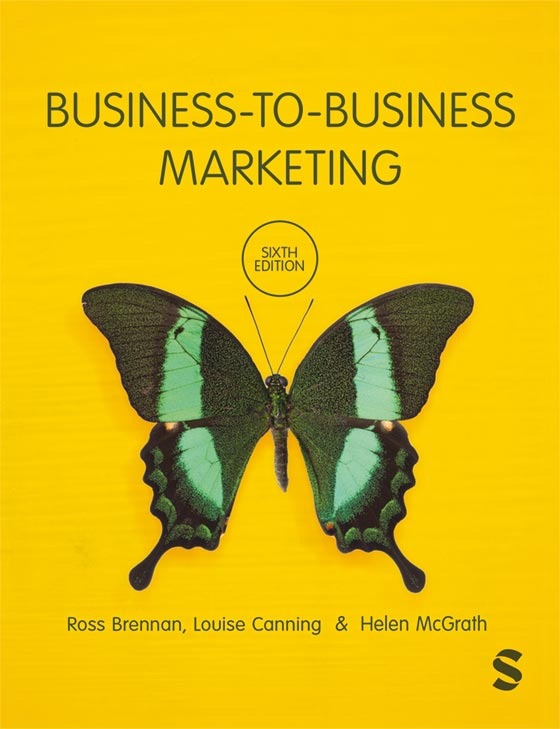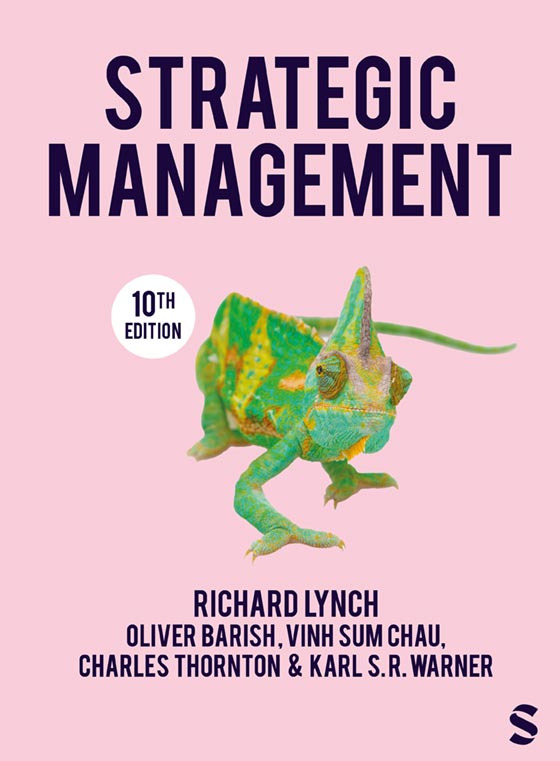You are in: Europe
Change location
You are here
Sustainability | Business & Management textbooks

In today's rapidly evolving business landscape, the concept of sustainability has transcended its initial environmental implications to become a fundamental aspect of strategic management and operational practices. Sustainability in Business & Management textbooks are pivotal resources that equip students and professionals alike with the knowledge, strategies, and ethical considerations necessary to drive sustainable business practices.
The samples from these texts offer a comprehensive exploration of how organizations can not only minimize their environmental footprint but also foster economic growth and social equity.

Building a sustainable future through digital innovation
Digital Business by AnnMarie Hanlon
In a world reshaped by technology, we've witnessed a monumental shift in how we work, learn, and connect. The COVID-19 pandemic fast-tracked the transition to digital platforms, pushing sectors like healthcare and education to advance a decade in mere months.
Our excerpt from Digital Business unveils how businesses are evolving from traditional to digital realms, not just to survive but thrive by placing customers at the core and redefining value. It highlights the intersection of digital innovation with the urgent call for sustainability, as underlined by the United Nations' Sustainable Development Goals (SDGs). Discover how leading companies are leveraging digital strategies to contribute to a sustainable future, and why mastering digital business concepts is pivotal in our quest for a better world.

Advancing Sustainability in Supply Chain Management with Tetra Pak in China
Principles of Business & Management by Oliver Laasch
Principles of Business & Management by Oliver Laasch serve as a testament to how digital innovation and sustainability are key to shaping a more sustainable future. Through examples like Tetra Pak's advancement in sustainable supply chain management in China, Laasch illustrates the potential of integrating sustainability into the core of business strategies.
The book underscores the importance of adopting digital business models and sustainable practices to address the United Nations' Sustainable Development Goals (SDGs), highlighting the shift towards a digital, sustainable business paradigm as critical for long-term success and environmental stewardship.

Pioneering sustainable practices
Business-to-Business Marketing by Ross Brennan
At the heart of Ross Brennan's Business-to-Business Marketing is the notion that sustainability isn't just about being eco-friendly—it's about creating business strategies that ensure long-term survival and success in a rapidly changing world. This notion places a significant emphasis on the idea that businesses should consume resources at a rate that allows for their renewal and only produce pollution at a rate the environment can assimilate.
With the integration of CSR and ethical considerations into strategic planning, Brennan suggests that businesses need to answer crucial 'why' questions from an ethical standpoint. Why should businesses consider the broader social impacts of their actions? And why should we not indulge in our preferred lifestyles regardless of the environmental cost? Addressing these questions invites ethical reasoning into the business strategy, showing that profitability and sustainability are not mutually exclusive but rather integral to each other. This holistic approach underscores the importance of creating customer value while ensuring the sustainability of business operations, highlighting a strategic challenge for B2B organizations to cultivate a competitive edge that harmonizes economic success with environmental stewardship.

Elaborating on green strategy
Strategic Management by Richard Lynch
In Strategic Management by Richard Lynch, the elaboration on green strategy and sustainability underscores the growing relevance of ecological considerations in strategic planning. Lynch's comprehensive analysis begins with differentiating the term "green strategy" from broader environmental contexts, aiming to prevent confusion and clarify its specific application in a strategic business milieu. This approach to green strategy emphasizes the dual focus on sustaining our planet's environment while spotting and seizing business opportunities stemming from this endeavor.
The text is meticulous in articulating how green strategy interweaves with various business disciplines, including corporate social responsibility, marketing, and finance, marking a significant stride towards meeting and surpassing sustainability standards. Through this lens, Lynch effectively spotlights the strategic imperatives of adopting a green perspective, urging businesses to pivot towards sustainable practices as an integral part of their long-term survival and success blueprint.

The role of social entrepreneurship in addressing global challenges
Entrepreneurship by David Deakins
The insights from Entrepreneurship by David Deakins reveal the transformative role of social entrepreneurship in tackling societal and environmental challenges. Through detailed case studies on Biji-biji, Deakins demonstrates how these enterprises weave sustainability, ethical considerations, and social value creation into their business models.
These examples not only amplify the importance of adopting sustainable practices but also highlight businesses' potential to drive positive change. The narrative emphasizes that profitability and societal contribution are not mutually exclusive but integral for modern enterprises aiming for long-term success. This section serves as an inspiration for adopting models that balance economic viability with environmental and social equity.
Are you a lecturer looking for the right book for your course?
Are you a student looking for resources to support your studies?
What role does sustainability have in business teaching?
We surveyed you to understand and are pleased to reveal a vibrant tapestry of methods and challenges in integrating sustainability into business and management education.
A whopping 65% of educators are weaving sustainability themes directly into their courses, utilizing a diverse set of resources ranging from sustainability-focused literature to simulations and UN materials. Engaging students through discussions, project-based learning, and role-playing exercises are paramount, indicating a dynamic approach to embedding sustainable practices. Partnerships with NGOs, industry experts, and academic networks play a crucial role, yet educators face hurdles, including a scarcity of case studies and comprehensive materials. This snapshot underscores a committed yet challenging endeavor to mould future leaders in sustainability.